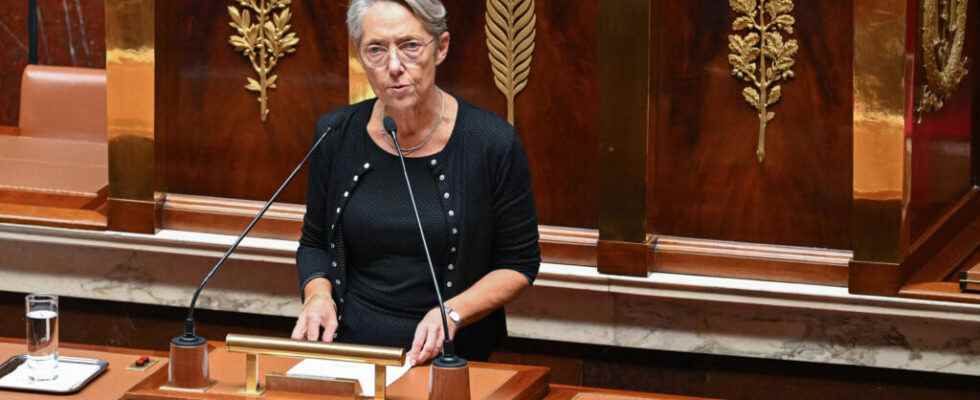The finance law for next year was finally adopted this Saturday, December 17 in the evening. This marks the end of a long parliamentary battle, with an autumn punctuated by the constitutional weapon of 49.3.
A tariff shield to protect the French to limit the rise in energy prices to 15% in the face of the explosion in gas and electricity prices, more than 10,000 additional civil servant positions, or even a reduced tax for businesses. These are some of the measures of the 2023 budget. The examination of this law was marked by the repeated use of the 49.3.
►Also listen: In France, a 2023 budget still marked by the crisis
It has become the preferred constitutional weapon of the government, deprived of an absolute majority in the National Assembly. Never since 1989, article 49.3 had been brandished so much: no less than ten times in two months to pass the state or social security budgets without a vote.
” It’s a denial of democracy “, estimates the Nupes
” It’s a denial of democracy “, answers David Guiraud, deputy of France Insoumise, carrier this Saturday with the Nupes of a new motion of censure to bring down the government. ” You decide alone in the secret of ministerial cabinets where no one will challenge you, you govern in the shadow of democracy. But without the support of the right, nor of the extreme right, the motion of censure is rejected. She collected only 101 votes, far from the absolute majority of 288 votes. And the finance law is, in fact, definitively adopted.
” I regret that we were not able to collectively find the means of a compromise, declares Élisabeth Borne, the Prime Minister. I am not satisfied with this situation, but you can repeat it a thousand times, we have not trampled on democracy or national representation. We have implemented our primary responsibility: to give France a budget. »
Oppositions do not admit defeat. And the Republicans (LR) and the Nupes have announced to seize the Constitutional Council.
►Also read: In France, the government draws a new 49.3 for the Social Security budget
49.3, the best known article of the Constitution
49.3 refers to article 49 paragraph 3 of the Constitution of the Fifth Republic, which allows the ” Prime Minister, after deliberation by the Council of Ministers “to engage” the responsibility of the government before the National Assembly on the vote of a bill of finance or financing of social security “. The Prime Minister can also use this mechanism for another bill, but only once per parliamentary session, which limits its use. The project is then considered adopted, “ unless a motion of censure, tabled within the following twenty-four hours, is voted under the conditions provided for in the preceding paragraph “.
By drawing 49.3, the government risks a motion of censure: the deputies must table it within 24 hours, signed by 58 of them. The text is then discussed in session within 48 hours. If the motion of censure fails to obtain an absolute majority, set at 289 votes, the government text is adopted without a vote. If the motion of censure is adopted, it leads to the resignation of the Prime Minister and his government. More than 100 motions of censure have been filed since 1958, recalls Agence France presse, but only one succeeded, in 1962, bringing down the government of Georges Pompidou.
